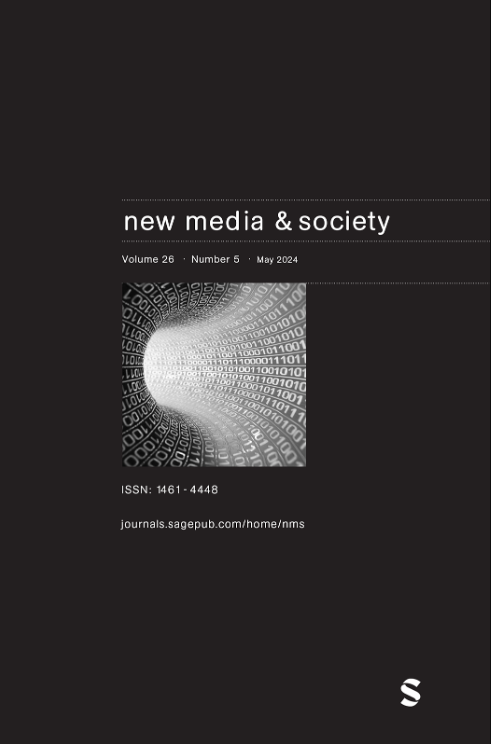“不再是我们的地方”:TikTok难民和小红书数字移民的政治
IF 4.3
1区 文学
Q1 COMMUNICATION
引用次数: 0
摘要
本研究以“抖音难民”迁移到小红书平台为例,考察了数字空间中的跨国地制。采用数字民族志和自动民族志的双重方法,我们认为这种迁移作为对国家领土化的表现抵抗,同时唤起了目的地平台上可见性的紧张。这些动态产生了一系列与地方表征和谈判相关的话语和实践,由自我与他人之间的语言、文化和政治界限所塑造。我们发现算法治理、去政治化的团结、文化所有权和新自由主义的不稳定性是这个数字场所创造的重要主题。通过关注特权和隐喻难民,他们在主办平台上的接受情况,以及国家和企业参与者的反应,我们的研究结果促进了对数字场所既是权力斗争的竞争场所又是文化融合的容器的理解。本文章由计算机程序翻译,如有差异,请以英文原文为准。
“No longer our place”: TikTok refugees and the politics of digital migration to Xiaohongshu
This study examines the transnational place-making in the digital space through a case study of “TikTok Refugees” migrating to the Xiaohongshu platform. Employing a dual methodology of digital ethnography and auto-ethnography, we argue that this migration functions as performative resistance against state territorialization while evoking the tension of visibility on the destination platform. These dynamics generates a range of discourses and practices related to place representations and negotiation, shaped by linguistic, cultural, and political boundaries between self and other. We discovered algorithmic governance, depoliticized solidarity, cultural ownership, and neoliberal precarity as important themes in this digital place-making. By focusing on privileged and metaphorical refugees, their reception on the host platform, and the responses from state and corporate actors, our findings advance understanding of digital places as both contested sites of power struggle and as containers for cultural fusion.
求助全文
通过发布文献求助,成功后即可免费获取论文全文。
去求助
来源期刊

New Media & Society
COMMUNICATION-
CiteScore
12.70
自引率
8.00%
发文量
274
期刊介绍:
New Media & Society engages in critical discussions of the key issues arising from the scale and speed of new media development, drawing on a wide range of disciplinary perspectives and on both theoretical and empirical research. The journal includes contributions on: -the individual and the social, the cultural and the political dimensions of new media -the global and local dimensions of the relationship between media and social change -contemporary as well as historical developments -the implications and impacts of, as well as the determinants and obstacles to, media change the relationship between theory, policy and practice.
 求助内容:
求助内容: 应助结果提醒方式:
应助结果提醒方式:


